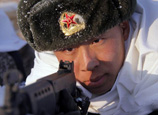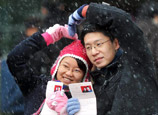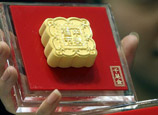
BEIJING, Jan. 5 (Xinhua) -- China's ministries and provincial governments have responded positively to an "eight-point" plan for fighting formalism and bureaucracy issued by the new leadership of the ruling Communist Party.
An increasing number of government departments have pledged their support for the initiatives in the month following the Dec. 4 meeting of the Political Bureau of the CPC Central Committee, in which the "war" was formally declared.
The latest response has come from the Ministry of Education.
According to a package of self-disciplinary measures for building an "clean and honest organization," which was publicized online Saturday, the ministry promises to cut unnecessary formalities in meetings and inspection tours.
It vows to ban forums from being held under the name of the ministry or its departments and to more strictly control ministry staffers' presence at ceremonies.
As part of efforts to save taxpayers money, the ministry also says meals for business visitors will be arranged at the ministry's staff cafeteria and floral arrangements won't be made for meetings.
In the often-cited eight-point bureaucracy-busting instructions issued at the Dec. 4 Political Bureau meeting, leaders urge authorities to improve their work style and forge closer ties with the masses in a bid to win public trust and support.
Officials should reject bureaucratism in domestic and overseas visits, reduce road closures for official activities and support more practical content in news reports.
Xi Jinping, general secretary of the CPC Central Committee, took the lead in putting the requirements into practice during a tour to Guangdong Province, the country's economic reform front, from Dec. 7 to 11.
There were no traffic controls or red-carpet arrangements during his visit, moves widely hailed by commentators and Internet users.
The military on Dec. 21 also enacted 10 regulations echoing the CPC leadership's call to reduce bureaucratism.
Issued by the Central Military Commission (CMC), the regulations ban liquor, luxurious banquets, welcome banners, red carpets and floral arrangements at receptions for CMC officers.
Military officials are also required to cut both the number and length of inspection tours, overseas visits, meetings and reports.
According to a Ministry of Public Security circular issued on Dec. 7, police must refrain from arranging road closures in general and "minimize time for traffic controls" for officials' trips.
The moves aim to "avoid inconveniencing the public wherever possible" and guarantee their normal traffic rights, the circular said.
Over the past month, more than 20 provincial governments have introduced measures to curb bureaucracy and formalism.
Xin Ming, an expert on counter-corruption studies with the Party School of the CPC Central Committee, said the war on bureaucratism launched by the CPC leadership targets the poor practices in officials' work style that are among the people's "most serious and immediate concerns."
The move is not a simple effort to just cut pointless formalities, but a substantial step for the Party in exercising self-discipline and treating its cadres strictly, as outlined by the 18th CPC National Congress report, according to experts.
Ai Yiwei, a professor with the Party school of the Hunan Provincial Committee of the CPC, said the move carries profound significance in helping the Party to win more public trust and support.














 "Food is the paramount necessity of life", so neither trivial nor minor is our daily eating.
"Food is the paramount necessity of life", so neither trivial nor minor is our daily eating.


![]()
